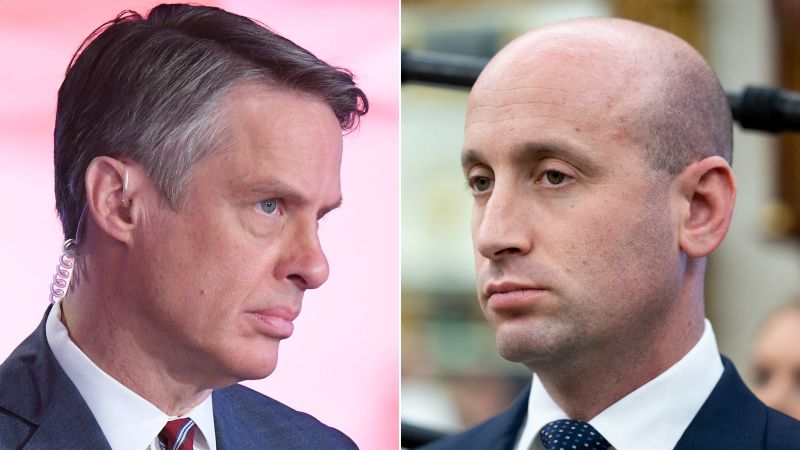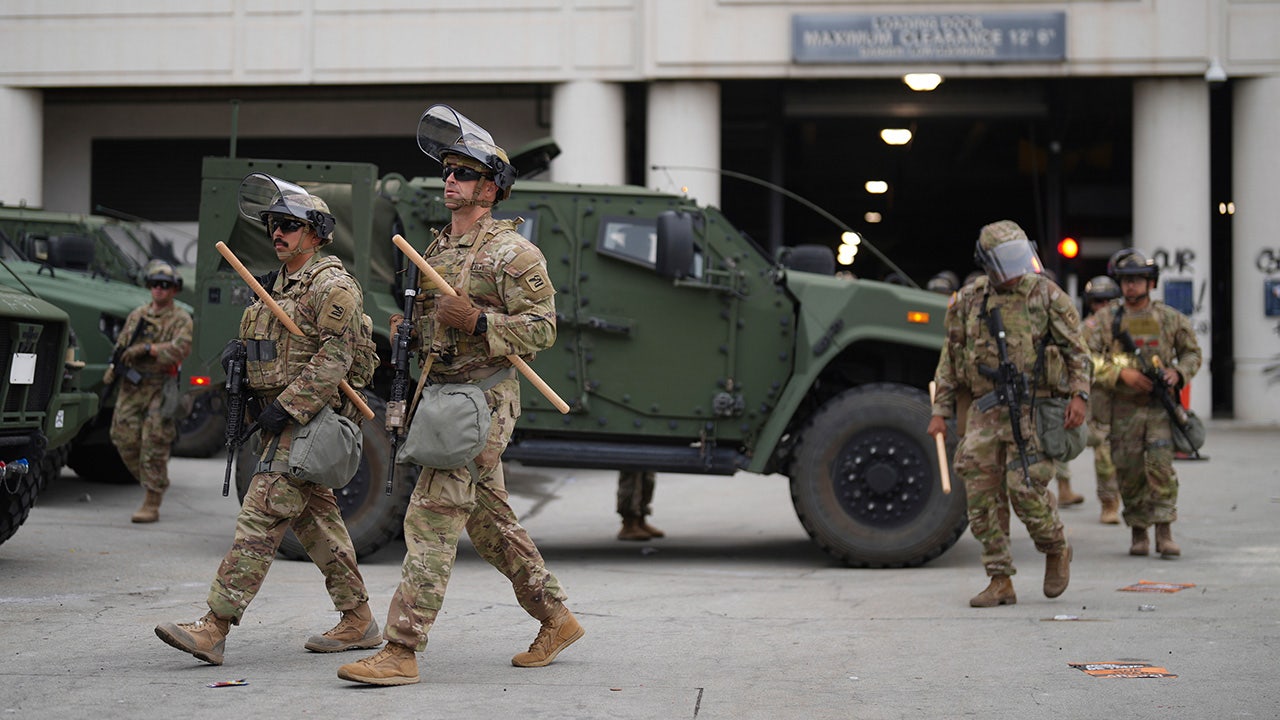Chinese firms eye European market
Huang Lun was one of the original architects of his Guangzhou-based company's push into the U.S. market, helping it to sell underwear and yoga pants via the online commerce platforms Amazon, Temu and Shein. The American market now makes up 70% of the company's total sales, but in March, with U.S. President Donald Trump threatening imminent tariffs on Chinese imports, Huang was tasked with finding new markets in Europe and Australia to help soften the inevitable blow.
Huang's company is one of hundreds of thousands that collectively ships billions of dollars worth of goods to the U.S., taking advantage of digital marketplaces, low-cost, high-volume manufacturing operations in China, U.S. consumers' voracious appetite for cheap clothing, electronics, toys and housewares, and a "de minimis" exemption on import taxes for low-value packages. The Trump administration's on-again, off-again trade war with China threatens the economics of the business, making it far more expensive to ship products to customers, and putting a tax on every imported product that either the consumer or the retailer will need to pay.
To mitigate the risk, Chinese e-commerce platforms are shifting resources to Europe and other markets, spending heavily on promotions to try to woo European consumers. European regulators and retailers are braced for a flood of low-cost goods. But that may be slow to come. The merchants in China -- the companies that actually buy, sell and ship apparel, electronics, decorations and toys -- are more focused on shoring up their core markets in the U.S., preferring to take higher risks and lower margins rather than tackle the complexity and bureaucracy of Europe.
Huang is among them. When the Trump administration announced 145% tariffs on Chinese imports and canceled the de minimis exemption, the company initially dropped its sales targets for the U.S. But soon after, Huang was pulled back to work part-time on the American market again. Trump suspended some tariffs for 90 days, and the company rushed to get new production orders to its factories and booked container space to ship a few more months' worth of inventory to the U.S. "We still need to keep an eye on other markets to always prepare in case things get worse again, but it's less urgent now," he said. "We feel the U.S. market is back, at least for this year."
After the Trump administration's tariff announcement, many Chinese sellers on e-commerce platforms increased their U.S. prices. The average price of 98 products on Shein tracked by Bloomberg News rose by more than 20% by early May from two weeks prior. Observed sales on Shein were 16% lower for the 28 days ended May 22, compared to the same period a year ago, according to Bloomberg Second Measure, which analyzes credit and debit card transactions in the U.S. Temu's sales fell about 19% in the same period from 2024 levels.
To try to convince merchants in China to refocus on European consumers, Shein, Temu and TikTok turned to the same tactics they used to build their markets in the U.S., spending heavily on advertising and subsidies to sellers and customers.
According to data from advertising analytics company AppGrowing Global, the number of new ads booked by Shein and Temu in the U.S. market fell more than 90% in the first three weeks of May, compared to the same period last year. In April and May, Temu's monthly ad volume in Europe was up 12 times from a year earlier, and up more than four times in the U.K. Both platforms have bought more ads in the U.K. than the U.S. in the past two months.
Temu, Shein and Tiktok have offered to pay part or all of the shipping costs to European markets, as well as directly subsidizing some purchases. Merchants who spoke to Bloomberg said Temu had offered $3.38 in subsidies on orders below $34.34, while TikTok was willing to subsidize sales via its newly launched U.K. store by $4.66.
However, interviews with six Chinese merchants selling on Temu, Shein, TikTok and Amazon suggest that these subsidies aren't enough to convince them to devote significant resources to Europe yet.
Those merchants who have tried have found the experience frustrating. Last year, Roy Chen, founder of Shenzhen-based smoke detector maker Sensereo, started selling in Europe via Amazon and his own website.
"I realized I entered a hell mode," Chen said. "I now deeply understand why everyone loved starting their overseas businesses in the U.S. market." To sell in Europe, he had to register for value added tax in each individual market, offer a range of plugs and translate his instruction manuals into at least five different languages. Rules and product standards kept changing, meaning he had to keep tweaking the product. "In this highly fragmented market, there's nowhere to generate such fat profits as people do in the huge single market like the U.S."
Although he'd originally discounted the U.S. market as too competitive, Chen started selling in the U.S. via his own website -- after the tariff announcements. He's still selling in Europe and expects to grow there, but sees the U.S. market as a better prospect in the short term. He expects other Chinese merchants will come to the same conclusion.
"Imagine a Chinese factory boss or merchant who started their U.S. business in the early years and used to earn $100 million per year from just one market," Chen said. "Now he has to start from zero, to learn all the complicated rules from Italy, Germany to Spain, and only make a fraction of the money from each market."
Many merchants are in precisely that situation, having spent years establishing themselves in the U.S., building their relationships with factories and platforms, and understanding what local consumers want, Wang Xin, head of the Shenzhen Cross-border E-commerce Association, said. That's a sunk cost. "Everyone is now putting all their efforts into prioritizing the U.S. market, busy producing and booking containers to ship as much inventory as possible," Wang said. "Taking good care of the U.S. business, getting cash flows and surviving, that's the most important and urgent thing now. Exploring other markets is important too, but not urgent, and it's not something you can rush to do."
EUROPEAN REGULATIONS
Some of the frustrations that Chinese companies have found in trying to enter European markets are there by design. The EU and U.K. typically have more rules on product standards and consumer protections than the U.S. -- non-tariff barriers that Trump has referenced in his trade disputes with the continent.
European regulators have already begun cracking down. The Commission is formally investigating Temu for potential breaches related to the sale of illegal products and manipulative user interface designs. In May, a separate enforcement action found that Shein used tactics such as fake discounts and misleading sustainability claims. Shein has one month to respond or face possible fines based on its EU turnover.
The U.S.' tariffs on China and the end of the de minimis rule have increased a sense of urgency in the EU, but the bloc's concerns predate the trade war. In 2024, about 4.6 billion parcels valued at $171.70 or less -- the EU's de minimis threshold -- entered the bloc, almost double the 2023 total. More than 90% originated from China.
Policymakers tend to argue that enforcing European standards protects consumers and means that imported products can't undercut local manufacturers by producing inferior, unsafe goods. "It's not about trying to prevent affordable products or blocking clever business models that we ourselves didn't come up with," said Bernhard Kluttig, a deputy German economy minister. "It's really just about making sure that everyone plays by the same rules."
When the Darmstadt Regional Council, a regional authority in Germany, tested 800 products from Asian e-commerce platforms, they found 95% of them didn't meet European standards. Among the products were laser pointers that exceeded legal output limits by up to 300 times. "If you get that in your eye, then your eyesight is gone," said Angelika Küster, head of the council's department for market surveillance, product and chemical safety. Other checks found toys with 100 times the permitted concentration of toxic chemicals.
The council has stepped up inspections and hired more staff to examine products from e-commerce sites, Küster said, "but it's clear that we can't compete with the sheer volume of products being introduced."
The European Commission has launched a new initiative called Priority Control Areas to carry out surprise cross-border checks and launched a web crawler tool, which it hopes can help to identify harmful products listed on e-commerce sites. Other potential solutions under discussion at the Commission include introducing a handling fee for e-commerce platforms and implementing a digital product passport, which may provide supply chain transparency through a QR code linked to detailed product information.
The EU is in the process of reviewing stricter rules and the elimination of the $171.70 de minimis customs duty exemption. But as the U.S. has already closed its equivalent in May, there's a risk that the e-commerce players now exploit Europe as a dumping ground while it's still possible. "We're often not as quick as Donald Trump," Kluttig said. "We can't issue executive orders that apply immediately and across all of Europe. We have different elaborate and complex legal processes. Which is important -- but decisions take longer."
Similar conversations are going on in the U.K., where the de minimis threshold is $183.23, and where industry groups have long argued that online retailers selling Chinese goods are undercutting local companies by skirting duties and safety checks. Exports of "low-value" parcels from China to the U.K. rose 53% in April, according to an analysis of China's customs trade database.
Parcels under the $183.23 threshold generally pass through customs with limited inspection. In research published in October, the British Toy and Hobby Association found 85% of the 75 toys it tested from third party sellers on 11 marketplaces, were non-compliant with EU and U.K. safety standards.
"It's difficult enough to pay all the taxes that we do without facing competition from people who pay none, particularly when they're supplying goods that are demonstrably not up to U.K. safety standards," said Andrew Goodacre, chief executive officer of Teal Group, which owns toy retailer The Entertainer.
A Temu spokesperson said that the company takes product safety seriously, with "a robust seller onboarding process, regular monitoring, and enforcement actions to ensure compliance," and that it works with testing and certification agencies. "We are committed to fair competition and supporting local businesses," the spokesperson said. "Our platform allows European and UK-based sellers to reach new customers through a low-cost channel, with half of our UK sales expected to come from local sellers and warehouses by the end of 2025. We're expanding this model across Europe, aiming for 80% of our European sales to come from local sellers over time."
A Shein spokesperson said that the company is "fully committed to ensuring the products we offer are safe and compliant," and that it is investing $15 million this year in product safety and compliance initiatives, performing 2.5 million product safety and quality tests, and expanding its partnerships with testing agencies.
AliExpress did not respond to a request for comment.
Information for this article was contributed by Denise Lu of Bloomberg News.















